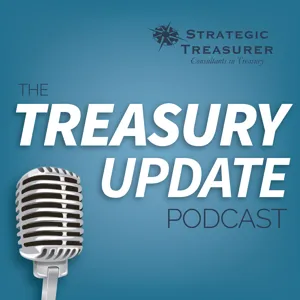Podcast Summary
Brexit's Impact on UK Markets: Uncertainty and Volatility: Brexit caused over £120bn loss for UK's top 100 companies, markets reacted to unexpected leave vote, more volatility expected as UK and EU navigate Brexit complexities.
The United Kingdom's decision to leave the European Union has brought significant uncertainty and volatility to the financial markets. The referendum results saw a shift in power to the people, leading to political upheaval and calls for further independence referendums in Scotland and Northern Ireland. The markets reacted dramatically, with over £120 billion wiped off the value of the UK's top 100 companies shortly after the London stock market opened. The initial reaction was one of shock, with many expecting the remain vote to win. However, the markets are described as a "weighing machine," and the unexpected leave vote led to a rush to cover bets made in favor of the remain outcome. The coming weeks and months will bring even more reaction and potential market volatility as the UK and the EU navigate the complexities of Brexit.
Shift in focus from economics to immigration: The Brexit vote was influenced significantly by the Leave campaign's emphasis on immigration as a key issue, shifting the public's focus away from economic discussions and ultimately leading to their victory.
The Brexit vote win was largely due to the Leave campaign's successful shift in focus from economic discussions to the issue of immigration. Four weeks prior to the vote, Remain was expected to win due to their economic strategy dominating the campaign. However, the Leave campaign made a deliberate decision to emphasize immigration instead, and it proved to be the winning issue. While there were various reasons why people voted to leave the EU, immigration was the most prominent one during the campaign. Despite the uncertainty and potential challenges ahead, it's essential for the United Kingdom to remain united and move forward.
Brexit: Beyond Economics: Immigration and sovereignty, not just economics, influenced Brexit. Failure to address voter concerns led to economic consequences.
The Brexit vote was not solely driven by economic concerns, despite repeated warnings from various institutions. Instead, the issue of immigration and sovereignty played a significant role in the outcome. The economic arguments, while important, did not resonate with many voters who felt overlooked and concerned about their country's rules and borders. The failure to address these concerns and sell the benefits of the European Union, such as the ability to work in other countries, was a missed opportunity for the Remain camp. The economic consequences of the vote, including the pound's record low and stock market losses, are now a reality, and all sides must work towards the best outcome for Britain.
UK's Brexit decision brings economic volatility but extensive contingency planning: The UK's exit from the EU will cause initial market turmoil, but the Bank of England has £250bn ready to support the economy, and experts believe the long-term impact may not be as severe as initial reactions suggest. However, uncertainty and fear in the markets have led to increased demand for safe-haven assets and a drop in oil prices.
The United Kingdom's decision to leave the European Union will bring about economic volatility, but the UK is well-prepared with extensive contingency planning from the Treasury and the Bank of England. Mark Carney, the Governor of the Bank of England, reassured markets that they have £250 billion available to support the economy. Some experts believe that the initial market reaction, which includes a falling FTSE and crashing pound, may be more negative than the actual impact on the UK and world economies in the long term. However, there is uncertainty and fear in the markets, leading to increased demand for safe-haven assets like gold and a drop in oil prices. It's important to note that the impact of Brexit won't just be felt in the UK, but also in the EU and the global economy as a whole. Overall, the markets are in a state of uncertainty and are trying to make sense of the situation.
Uncertainty over Brexit leads to 'flight to safety' in financial markets: Investors are shifting funds from risky assets to safer ones like UK gov bonds due to Brexit uncertainty, causing lower yields on 2-year and longer-term bonds. Some experts predict a recession but it's best for non-investors to maintain a long-term perspective.
The uncertainty surrounding Britain's exit from the EU (Brexit) has led to a "flight to safety" in financial markets. This means investors are moving their money from perceived risky assets to safer ones, such as UK government bonds. The yield on 2-year UK government bonds dropped significantly today, indicating that investors now expect interest rates to be lower in two years than they did yesterday. This uncertainty has also caused a decline in longer-term bond yields. While some experts advise against panicking, others predict a potential recession. It's important for non-investors to remember that markets can be volatile and may overshoot, so it's generally best to maintain a long-term perspective. A technical recession is defined as two consecutive quarters of falling economic growth. However, it's important to note that economic figures are often revised after they're initially reported.
Uncertainty and potential upheaval for UK, EU, and individual European countries due to Brexit: Brexit may lead to referendums in several European countries, potential secession in Scotland and Northern Ireland, and significant impacts on savings, investments, house prices, pensions, wages, jobs, and holidays.
The United Kingdom's decision to leave the European Union (EU), also known as Brexit, has created uncertainty and potential upheaval for not just the UK, but also for the EU and individual European countries. This divorce process is expected to be messy and may lead to referendums in countries like Sweden, Germany, Italy, and France, and even potential secession in Scotland and Northern Ireland. The impact on savings, investments, house prices, pensions, wages, jobs, and holidays is yet to be fully understood and will be explored in the coming days and weeks. The situation is both scary and exciting for financial journalists and analysts, as they navigate through the complexities of this unprecedented event.
UK's exit from EU brings complex process of adjustment: Experts predict potential economic shocks, but full impact of UK's exit from EU remains uncertain, negotiations around trade and freedom of movement are key issues, and UK's economic outlook may weaken due to uncertainty.
The UK's departure from the EU will bring about significant changes, particularly in areas of business that heavily rely on EU funding and investment. However, for most workers and employees, there may not be immediate changes to employment laws. The European Court of Justice will no longer have jurisdiction over UK cases once the country leaves the EU, but the European Court of Human Rights, which the UK is still a part of, will continue to have an impact. Experts predict potential economic shocks, including lower wages and increased unemployment, but the full impact remains uncertain. Negotiations around trade agreements and freedom of movement are expected to be key issues during the next two years. Additionally, the UK's economic outlook may weaken due to uncertainty, making it less attractive for businesses to invest. Overall, the UK's exit from the EU will bring about a long and complex process of adjustment.
Companies hoarding cash, low productivity and wage growth: Economic uncertainty leads to cash hoarding, hindering investment, productivity and wage growth. Small businesses seek regulatory relief, while housing prices remain a contentious issue.
Companies are hoarding cash instead of investing in their businesses and workers, leading to low productivity and wage growth. This trend is linked to economic uncertainty, particularly in the aftermath of the financial crisis and Brexit. The lack of investment could worsen the situation, and it's crucial for the government and the Bank of England to address this issue with a concrete plan. Meanwhile, small businesses are relieved from EU red tape but hope for a simpler regulatory environment moving forward. Regarding housing, the conversation touched upon the issue of rising house prices, but no clear consensus was reached on the causes or potential solutions.
Brexit's impact on UK house prices uncertain: Brexit's uncertainty and potential economic instability may lead to a decrease in house prices, but other factors like the housing crisis, reliance on migrant labor, and government policies also play a role.
The outcome of Brexit on house prices in the UK is uncertain, with predictions ranging from a potential drop of up to 10%, to no change at all. Experts suggest that uncertainty surrounding the vote and potential economic instability could lead to a decrease in house prices due to reduced demand from foreign investors and domestic buyers. However, other factors such as the housing crisis caused by supply and demand imbalances, the reliance of the construction industry on migrant labor, and government policies like stamp duty hikes could also significantly impact the housing market. Ultimately, the full effect of Brexit on house prices will depend on a multitude of interconnected factors.
Uncertainty in the short-term for economy and housing market: The short-term impact of Brexit may cause turbulence, but long-term homeowners could benefit from lower housing prices. Pensioners should consider alternative investment options due to potential investment returns impact.
The short-term impact of the UK leaving the EU may bring turbulence to the economy, leading to potential falls in house prices, a weakening pound, and declining stock markets. However, for those planning to live in their houses for an extended period, the short-term impact may be less significant as they can benefit from cheaper housing prices in the long run. For pensions, the triple lock may not be axed, but investment returns could be affected, particularly for those closer to retirement or already retired and drawing an income. In such cases, it's crucial to avoid spending capital and consider alternative investment options. Overall, while the coming days and weeks may be uncertain, the long-term economic outlook remains unclear, and those with a long-term investment horizon should keep their nerve and avoid panicking.
Brexit's impact on UK pensions and taxes: The future of UK pensions and taxes is uncertain post-Brexit, with potential decreases in annuity rates and pension tax relief changes. Stay informed and prepare for potential changes.
The future of pensions and taxes in the UK, as well as the EU, remains uncertain following the Brexit vote. Annuity rates could potentially decrease further for expats living in certain countries where pensions don't get upgraded by inflation. Pension tax relief is another area of potential change, with the government previously considering cuts which may be revisited. The upcoming selection of a new prime minister and the potential impact on other countries considering EU referendums adds to the uncertainty. It is important for individuals to stay informed and prepare for potential changes. Additionally, the Brexit vote and the divisive referendum campaign serve as a reminder for the importance of respectful political discourse and finding common ground for the betterment of the country.






